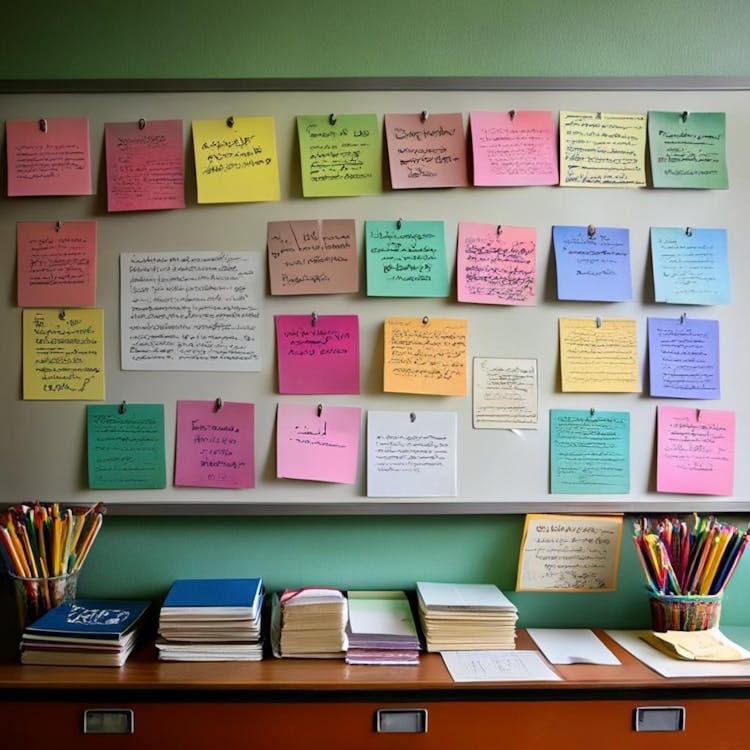
Linguisity - Blog
How to Improve Writing Skills in English as a Second Language: A Comprehensive Guide
As an English language learner, you may find writing to be one of the most challenging aspects of mastering the language. Writing skills are crucial for academic success, professional growth, and personal expression. In this comprehensive guide, we will explore various strategies and techniques to help you improve your writing skills in English as a second language (ESL).
Unraveling the Causes of Poor Writing Skills in Students: A Guide
Writing is an essential skill that plays a crucial role in academic success and personal growth. However, many students struggle with developing strong writing abilities due to various factors. In this blog post, we will explore some common causes of poor writing skills among students and discuss strategies for addressing these challenges effectively.
How do I help my child who is struggling with writing?: Tips and Tricks
As a parent, it can be frustrating to watch your child struggle with writing. Whether they have trouble forming letters, organizing their thoughts, or expressing themselves on paper, there are many reasons why children may find writing challenging. Fortunately, there are steps you can take to help your child improve their writing skills and build confidence in their abilities.
Mastering Spanish Fluency: Strategies and Tools for Effective Language Practice
Learning a new language is an exciting journey that requires dedication, patience, and consistent practice. If you're looking to improve your Spanish skills and become more fluent in the language, there are several effective strategies you can use. In this blog post, we will explore various techniques for practicing Spanish fluency, including immersion methods, conversation practice, vocabulary building exercises, grammar drills, and cultural understanding activities.
Empowering Struggling Writers: Accommodation Strategies & AI Support
Writing is a complex skill that requires students to integrate various cognitive processes, such as planning, organizing, generating ideas, and monitoring their work. For some students, however, the writing process can be challenging due to difficulties with handwriting, spelling, or other aspects of written expression. These challenges are often associated with learning disabilities like dysgraphia or dyscalculia.
Practice Your Writing Skills at Home: Activities and Resources to Enhance Your Craft
Writing is a crucial skill that plays an essential role in our daily lives, whether it's for personal or professional purposes. Practicing your writing skills at home not only helps you become a better writer but also improves critical thinking abilities and boosts self-confidence through effective expression. In this blog post, we will explore various ways to practice your writing abilities from the comfort of your own home.
Why Is Writing in a Second Language So Challenging?: Master Your Skills
Writing in a second language can be a daunting task for many learners. Even advanced level speakers may struggle with written communications compared to spoken ones. In this post, we'll explore some of the reasons why writing in a second language is so difficult and offer tips for overcoming these challenges.
Mastering Foreign Languages: 5 Proven Techniques and the AI-Powered Edge of Linguisity
Learning a new language can be an exciting yet daunting task, but with the right strategies in place, you'll find yourself making progress faster than you ever thought possible. In this article, we will explore five proven tricks to help you master foreign languages more effectively.
Unlocking Potential: Engaging Writing Activities for English Language Learners
English language learners (ELLs) face unique challenges when it comes to writing in a new language. However, incorporating diverse and engaging writing activities can significantly improve their language skills while building confidence along the way. In this blog post, we will explore various types of writing activities suitable for ELL students at different levels of English proficiency, as well as provide tips and strategies for teachers working with these learners.
Unlocking Your Child's Writing Potential: A Comprehensive Guide to Starting Writing Practice
Writing is an essential skill that plays a crucial role in children's cognitive, emotional, and social development. As parents or educators, it's our responsibility to help them develop strong writing skills from an early age. In this guide, we will explore various stages of writing development in kids and provide practical tips on how you can start writing practice for your child effectively.
Unraveling the Speed of Language Fluency: A Comprehensive Guide to Accelerating Your Progress Towards Proficiency
Language learning is a fascinating journey that often leaves learners wondering, "How quickly can you become fluent in a language?" This question has sparked curiosity and interest among linguists, educators, and language enthusiasts alike. In this comprehensive guide, we will explore the various factors affecting language learning speed, debunk common myths surrounding fluency, discuss practical techniques and resources to accelerate your progress, and set realistic expectations for achieving proficiency in a new language.
Mastering Sentence Structure: Tips, Techniques, and Resources to Fix Awkward Sentences
Writing is a skill that requires constant practice and improvement. One common challenge faced by writers at all levels is creating awkward sentences - those that are difficult to read, confusing, or unclear. In this blog post, we will discuss how to identify and fix these problematic sentences so you can improve your writing skills and create more polished content.
Is French Spelling Harder Than English? : A Comprehensive Comparison and Guide to Overcoming Challenges with Linguisity
Have you ever wondered if learning French spelling is more challenging than mastering English spelling? As someone who has studied both languages, I can assure you that this question deserves a closer look. In this blog post, we will explore the differences between French and English spelling systems to determine whether one is indeed harder than the other - with an emphasis on how Linguisity, our AI-powered language mastery tool, can help overcome these challenges.
Mastering Linking Words: A Comprehensive Guide for Non-Native English Writers
As a non-native English writer, it's essential to understand how linking words can enhance your writing while avoiding their overuse. This guide will help you identify common issues related to linking word usage and provide practical strategies to improve your writing skills.
Mastering Simple Tenses in French: Verb Conjugation & Usage
Learn the basics of simple tenses in French, including present, past, and future forms, with examples and tips on mastering regular and irregular verbs. Improve your communication skills and enhance your understanding of French grammar with our comprehensive guide.
Mastering the Art of Assessing ESL Writing: Strategies and Tools
Assessment of ESL (English as a Second Language) student progress can be a challenging task for educators. While we have state and federal testing requirements, it's essential to monitor their daily progress informally as well. In this blog post, we will provide an overview of the best and most effective tools for assessing ESL students in all four language domains: listening, speaking, reading, and writing.
The Emotional Rollercoaster of Learning a New Language: Excitement, Frustration, and the Rewards of Bilingualism
Learning a new language is an incredibly rewarding journey that can evoke various emotions and experiences along the way. In this blog post, we will explore different aspects of learning a new language, including excitement and motivation at the beginning, frustration and self-doubt during plateaus, pride and satisfaction upon achieving milestones, cultural immersion, time management strategies, and the benefits of bilingualism or multilingualism.
The Quest for the Easiest Language to Write: A Comprehensive Guide
Learning a new language can be an exciting and rewarding experience, but it's no secret that some languages are easier to learn than others - especially when it comes to their written forms. As English speakers, we often wonder which language has the easiest writing system for us to master. In this blog post, we will explore various factors contributing to a writing system's ease of learning and present several top contenders among languages with easily learnable written forms.
10 Writing Exercises to Sharpen Your Craft and Boost Your Confidence: Elevate Your Writing
Writing is a skill that requires constant practice to improve. Just like any other craft, writers need exercises to hone their skills and keep them sharp. In this blog post, we'll explore various writing exercises designed for beginners, intermediate-level writers, and advanced practitioners alike - including how our AI-powered language mastery tool, Linguisity, can help you take your writing practice to the next level.
Unraveling the Mystery of Fluent Writing: Definitions, Levels, and Strategies
Writing fluency is a crucial aspect of language proficiency that often goes overlooked in favor of speaking or listening skills. However, being able to express oneself clearly and coherently through written text can significantly impact one's academic success, professional opportunities, and personal growth. In this blog post, we will explore what it means for someone to be considered fluent in writing by examining various definitions from different sources and discussing the importance of understanding this concept.



















